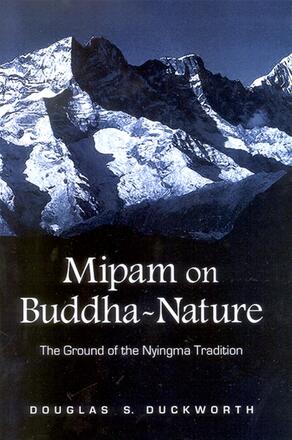
Mipam on Buddha-Nature
The Ground of the Nyingma Tradition
Alternative formats available from:
A comprehensive overview of Tibetan Buddhist thinker Mipam’s work on emptiness and Buddha-nature.
Description
Mipam ('ju mi pham rgya mtsho, 1846–1912) is one of the most prolific thinkers in the history of Tibet and is a key figure in the Nyingma tradition of Buddhism. His works continue to be widely studied in the Tibetan cultural region and beyond. This book provides an in-depth account of Mipam's view, drawing on a wide range of his works and offering several new translations. Douglas S. Duckworth shows how a dialectic of presence and absence permeates Mipam's writings on the Middle Way and Buddha-nature.
Arguably the most important doctrine in Buddhism, Buddha-nature is, for Mipam, equivalent to the true meaning of emptiness; it is the ground of all and the common ground shared by sentient beings and Buddhas. This ground is the foundation of the path and inseparable from the goal of Buddhahood. Duckworth probes deeply into Mipam's writings on Buddha-nature to illuminate its central place in a dynamic Buddhist philosophy.
Douglas S. Duckworth is Visiting Assistant Professor in the Department of Religious Studies at the University of North Carolina Greensboro.
Reviews
"…this is a valuable and serious contribution to the study of Tibetan Buddhist philosophy that will be of real interest to specialists. " — Journal of the American Oriental Society
"Duckworth significantly advances our understanding of this important figure and this long-neglected period of Tibetan intellectual life. " — Journal of Asian Studies
"…an important in-depth study … Duckworth's study has succeeded in making a significant intra-religious Buddhist dialogue available in English. It thereby represents a valuable piece of the puzzle. " — Journal of the American Academy of Religion
"The author brings impressive detail and erudition to bear on this topic; he is clearly well read in the relevant Tibetan materials, the Indian background, and relevant contemporary scholarship. This book represents a significant contribution to the fields of Tibetan and Buddhist studies, and it fills a gap in our knowledge of Nyingma philosophy. " — Gregory A. Hillis, University of California at Santa Barbara